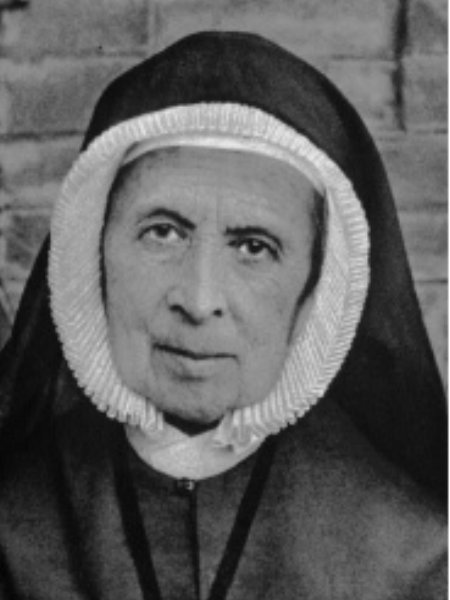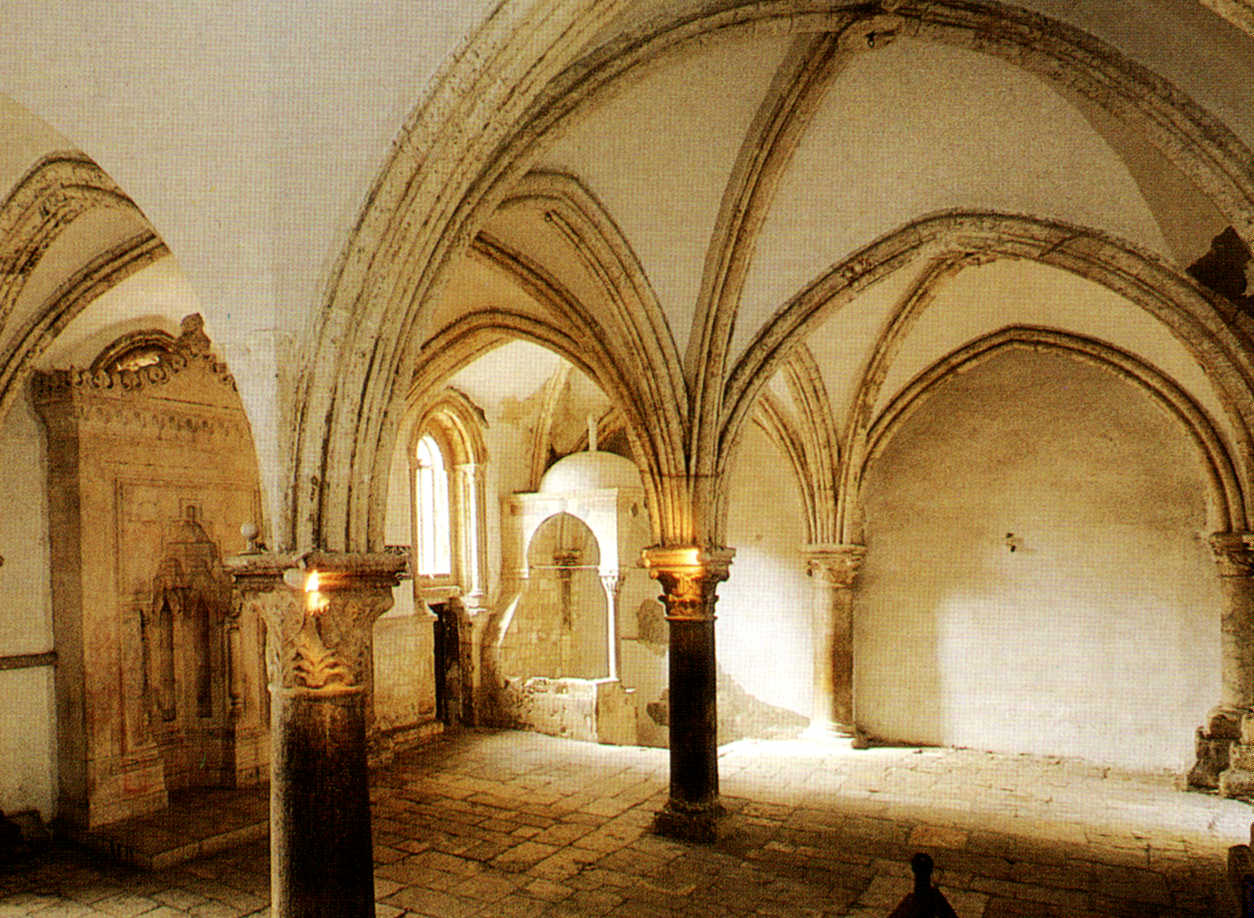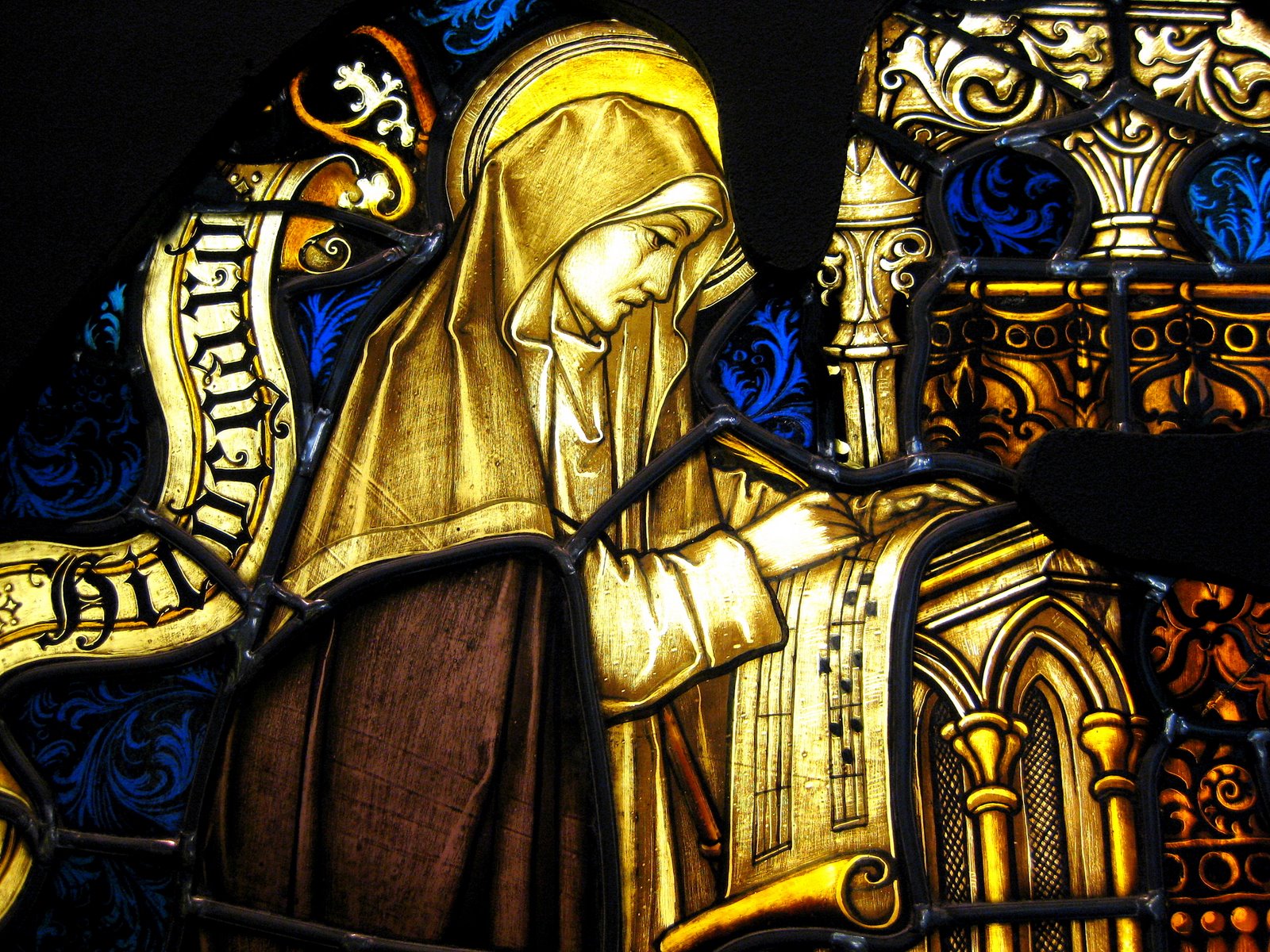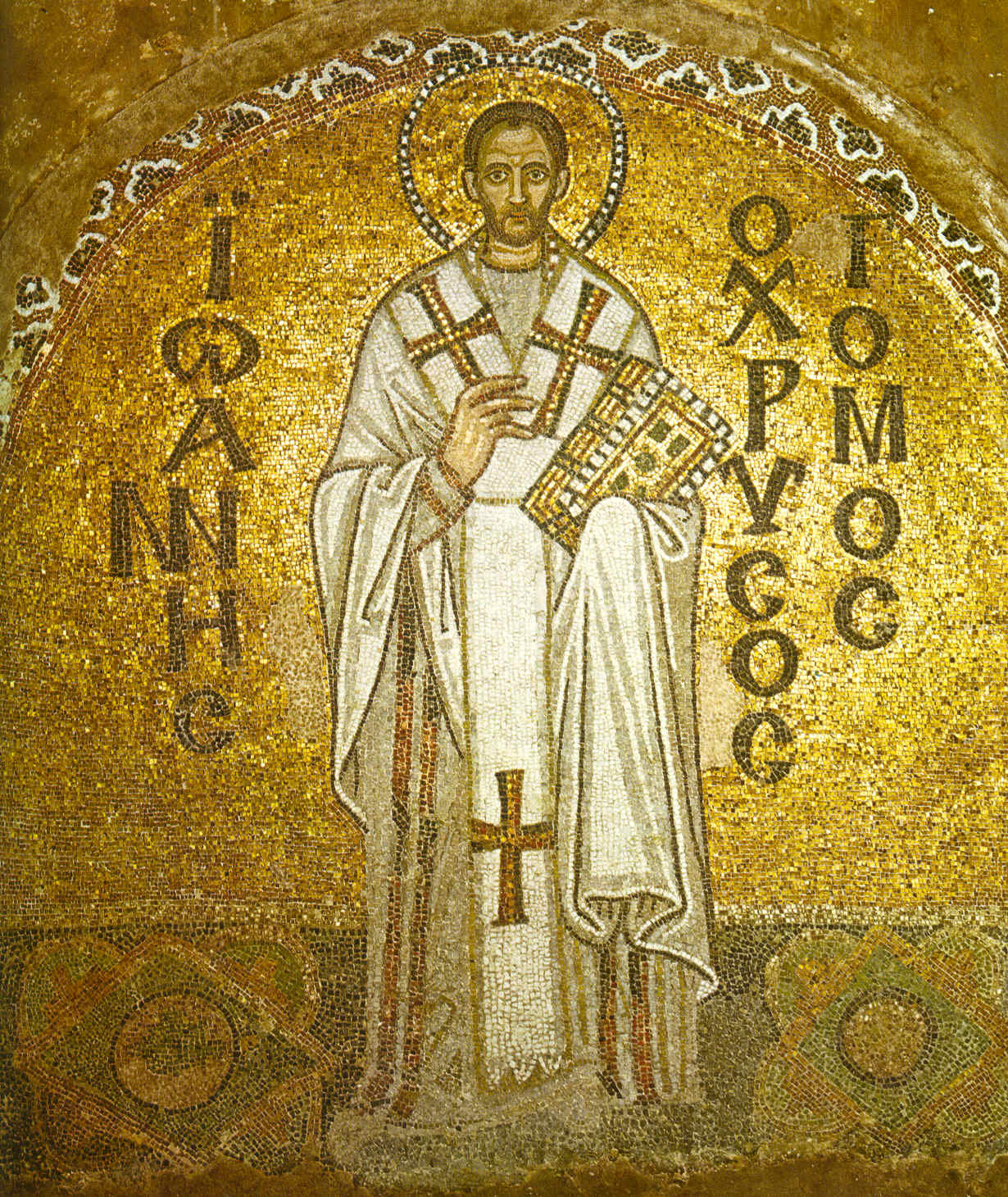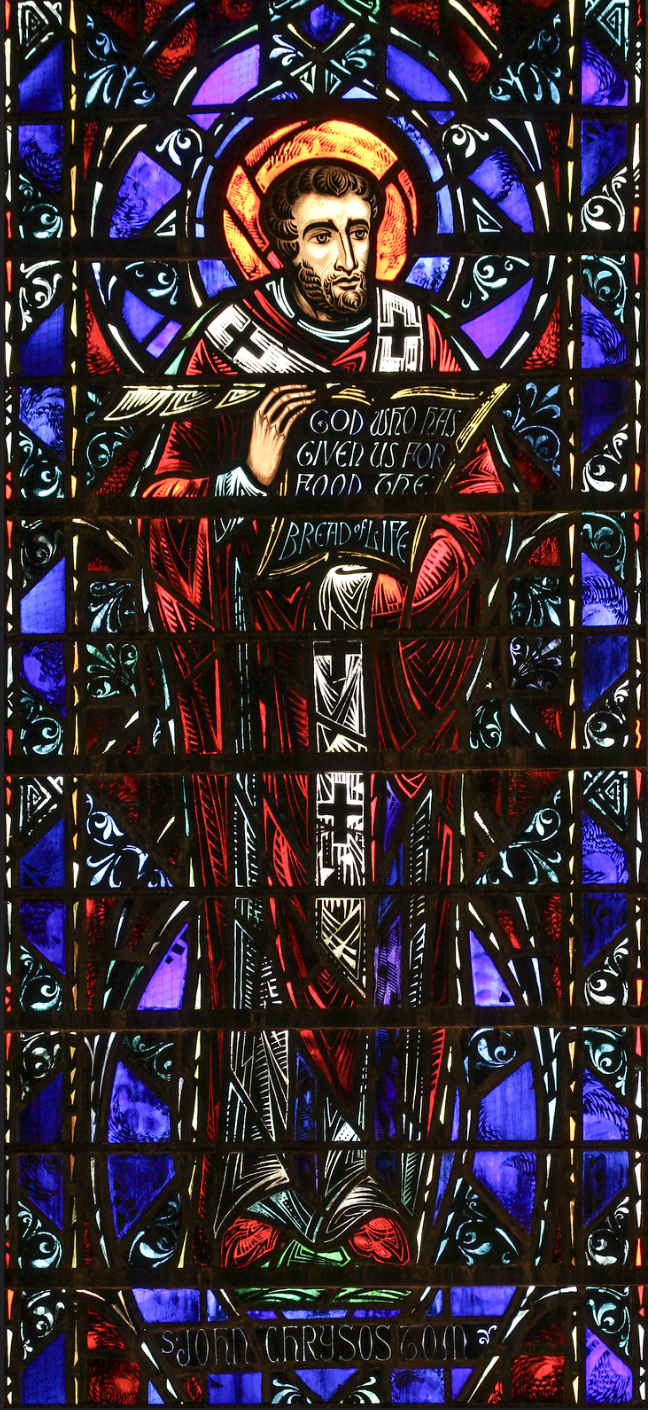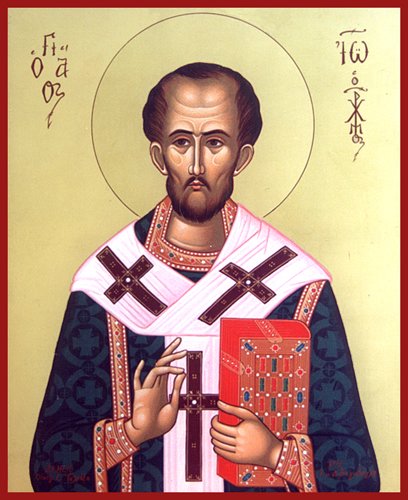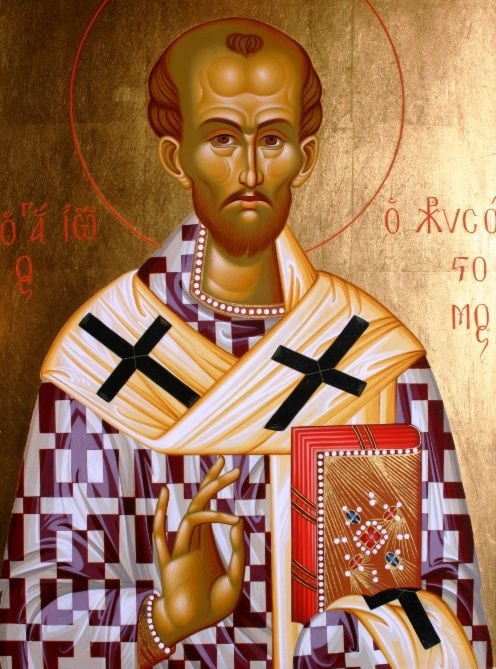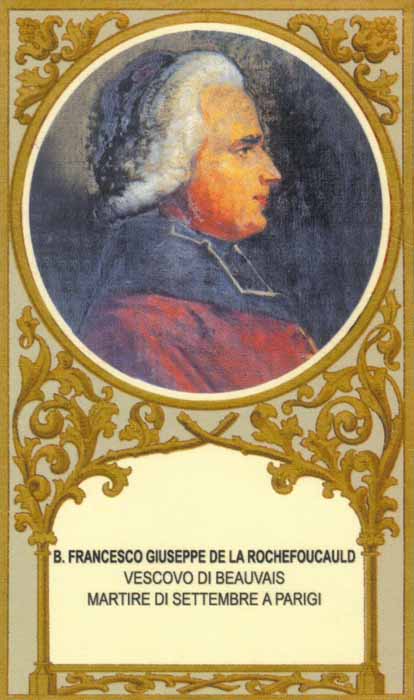“God always gives more than we ask.” -Saint Marie-Victoire Therese Couderc
I have been on retreat more than once at The Cenacle in Lincoln Park in Chicago, www.cenaclesisters.org/chicago/. Of course my first question, as would almost anyone’s would be, “What’s a cenacle?”
The Cenacle, from Latin “cenaculum”, also known as the “Upper Room”, is the site of The Last Supper. The word is a derivative of the Latin word “cena”, which means “dinner”. In Christian tradition, based on Acts 1:13(& 14), “When they arrived, they went upstairs to the room where they were staying. Those present were Peter, John, James and Andrew; Philip and Thomas, Bartholomew and Matthew; James son of Alphaeus and Simon the Zealot, and Judas son of James. They all joined together constantly in prayer, along with the women and Mary the mother of Jesus, and with his brothers.”
The “Upper Room” was not only the site of the Last Supper (i.e. the
Cenacle), but also the usual place where the Apostles stayed in Jerusalem, sometimes thought of as the first Christian church. Thus the Cenacle is considered the site where many other events described in the New Testament took place, such as:
- the Washing of the Feet by the Lord of the Apostles
- some Resurrection appearances of Jesus
- the gathering of the disciples after the Ascension of Jesus
- the election of Saint Matthias as apostle
- the descent of the Holy Spirit upon the disciples on the day of Pentecost
Not a bad place for a retreat? Huh? 🙂
Marie-Victoire Couderc was born in 1805 in Le Mas (Ardèche),
France. She made her novitiate with the Sisters of St. Regis in Lalouvesc (Ardèche) in 1825, taking the religious name Therese.
Concerned with welfare of female pilgrims visiting the shrine of St. John Francis Regis, SJ, in town, she co-founded the Sisters of the Cenacle with Father Jean-Pierre Etienne Terme in 1826. It was a response to the disruption and reawakening of the practice of the Faith in France due to the Revolution
St Therese became the Congregation’s founder Superior in 1828, and when the Mother House was established, its Superior General until 1838. The retreats increased rapidly and plans were made to build a new chapel and a new convent. But, after completion, the promised funding evaporated. The bishop of Viviers too quickly lost his trust in Therese, reinforcing Mother Therese’s own humble but mistaken conviction that she was to blame for the debacle. At last, she resigned her office of superior. She was thirty-three years old, having guided her sisters for the first ten years of the congregation’s existence.
Her successor, chosen by the Jesuit provincial, was Mademoiselle Gallet, a wealthy widow only 20 years old, who had been a novice for only 15 days, having entered on September 24, 1838, who hardly knew the first thing about being a nun, put the convent through a terrible trial. She made the rules more lax, Mother Therese had always insisted on silence and evangelical poverty, and borrowed money to buy beautiful things for the convent. Many nuns and outsiders were shocked at this new turn of events, but Our Lady was watching out for the little community.
When mademoiselle died later that year, she left her fortune to the
congregation. However, her relatives contested her will, and the
Cenacle’s financial situation was once more thrown into disarray. The Bishop of Viviers named Countess de la Villeurnoy the new Superior general. Soon, she even began to call herself “mother founder.”
The community of nuns as well as outside friends blamed Mother Thérèse for the whole affair. Rumors began to circulate. “They say that Therese is incompetent and has no business ability whatsoever. How can we count on her to raise funds for the congregation if she is going to fail like this? And her health is reported to be failing badly; perhaps she is no longer capable of governing. It is possible that she has mental problems.”
“It seems that no one can govern this congregation,” he began. “You
yourself resigned your office in disgrace, and this Countess has led you all to the brink of disaster. Now it falls to me to pick up the pieces.
Tell me: should I assign a new superior? Would it help this congregation function better?”
Mother Therese remained silent for a moment. “Fr Renault,” she said
carefully, “You know that I am a professed religious, and that I have taken a vow of obedience to my superiors for life. To me, that obedience means that I must respect every action of my superiors, whether it appeals to me or not. God has placed Mother de la Villeurnoy in a position of authority over me; you seek testimony which I cannot give nor do I wish to give.”
The provincial was dumbfounded. “But this woman calls herself the founder! She has stolen the respect that is rightfully yours!” he burst out.
“Perhaps,” Mother Therese said quietly. “But more important than any title is the vow which I have made to my Creator and Redeemer.”
Nevertheless, the provincial did not need her testimony; there was more than enough evidence against the Countess. After causing eleven months of havoc, the Countess was removed from office.
Mother Contenet, her replacement, eager to attract members of the higher social classes for the congregation, expelled ten of the original twelve members of the congregation. Convinced of the ineptitude of the true founder, she did everything in her power to keep Mother Therese away from the other sisters. Therese was exiled from her chosen work of giving retreats to spend thirteen years at the most difficult manual labor in the congregation, working in the gardens and the cellar. Conditions were so poor that her eyesight was permanently impaired. Her food was only the worst of the vegetables and the unwanted remnants of black bread which the gardener threw alongside the convent wall.
Mother Therese dropped into increasing obscurity. “After all,” she
reflected, “the religious life is a sufficiently great grace even though one purchase it at the price of the most difficult of sacrifices.” Despite the great mortification of her state, she told the young religious that “We should never allow even one thought of sadness to enter the soul. Have we not within us Him who is the joy of Heaven!”
Mother Therese’s exile ended with the death of Mother Contenet in 1852, but dissension and instability once more returned to the Cenacle. Mother Anaïs was elected the new superior general, but left the congregation three years later. Not until 1856 did Therese return to an active role in the congregation.
During a time of crisis, Mother Therese was sent briefly to serve as temporary superior of the convent in Paris and then at Tournon, where her governance was remembered for its firmness but genuine goodness. Again, however, she disappeared into the background.
One day, while visiting one of the convents of the Religious of the
Cenacle, Cardinal Lavigerie noticed Mother Therese praying in the chapel. He turned to the superior of the house and asked, “Anyone can see how holy the face of this sister is. What is her name?”
“Sister Therese Couderc,” was the reply.
“She seems such a saint,” he mused. “What is her place in the history of the congregation?”
The superior was embarrassed. “Well, she was in charge of the gardens for many years, and she was sent to be a temporary superior at two houses in the 1850’s. Now she just mostly prays in the chapel, and we let her alone.”
Cardinal Lavigerie looked at her sharply. “She has been left out, hasn’t she?” The superior said nothing.
Her reputation had been by now so thoroughly maligned by her superiors that even her status as founder had been completely forgotten. Her work as founder had been, above all, her prayers, penances, and humiliation. It was only towards the end of her life, when the bishop of Viviers launched an inquiry into the circumstances of the foundation, that Mother Therese Couderc was finally recognized as the founder of the Sisters of the Cenacle. Fra Angelico’s “The Mocking of Christ” comes to mind.
Mother Thérèse spent many years at the convent in Fourvière, being in charge of the manual labour. She describes some of these trying times…..“We gathered up pieces of black bread which a man used to throw beside the convent wall. At night and early morning we had only one lamp in the hall to give us light to dress by and we had very poor light to work by at recreation.”
Therese told the younger nuns, “Great trials make great souls
and fit them for the great things which God wishes to do through them…Let us say bravely and confidently: God is sufficient for me!…We should never allow even one thought of sadness to enter the soul, because we have within us, Jesus, the Joy of Heaven!”
In 1864, God made Therese understand that souls would not do enough prayer and penance. She wanted to save souls and she firmly believed in self-surrender. Mother Thérèse said, “There is sweetness and peace when one gives himself totally to God, and by doing this, the soul finds Heaven on earth!”
Mother Thérèse spent the last ten years of her life in much suffering of body and soul. In 1875, she offered herself to Our Lord as a victim soul. Day after day, but especially on Thursdays and Fridays, she shared Our Lord’s Agony in the Garden of Gethsemane. She would stay in the chapel near the altar and weep for hours on end, saying over and over, “Have pity on me Dear Lord, have pity on me!”
Her sufferings increased and by 1885, Mother Thérèse had to stay in her. In her pains she suffered patiently and suffered with great peace of. It is reported by a contemporary biographer, Mother Therese stated that the Poor Souls in Purgatory would often come to visit her and they would sing with great love and humility, the “Te Deum.” On September 26, 1885, Mother Thérèse died, closing her eyes to this world. Like a number of founders and foundresses, she later was honored for her sanctity. She died in Lyon at age 80 and is buried in Lalouvesc.
———————-
The modern day sisters of the the Cenacle, 1500 members in sixteen countries, possess a compelling love for Jesus Christ and try to find the best means of making Him better known and loved through their ministry of spiritual direction, personal, private, Ignatian, and directed retreats, particularly in the retreat centers they administer. By membership in their Congregation they give their word to God and each other to continue their search to live the Gospel in the society of today. Not a bad promise to make, IMHO.
During your retreat, you may request a Cenacle sister as a spiritual companion. The Irish have the expression Kelly and I have inscribed on the inside of our wedding rings, “Anam Cara”=”soul friend”. A Cenacle sister, if requested, may, as a trained and experienced spiritual companion, support you in:
- Exploring the “desires of your heart” by talking about your life and your relationship with God.
- Encouraging you in your prayer.
Becoming aware of God’s action in the events of your life and your inner journey. - Reverencing and savoring your experience of God.
- Listening to the deepest desires of your heart.
- Trusting in the Holy Spirit to help you find within yourself the answers to your deep questions.
- Discerning a direction for your life that is in harmony with God’s dream for you.
For me, prayer is like breathing. I absolutely need it. I depend on upon it. Nothing works without it. It must be first. It has become more intense with time and graces received. To rest, completely. To be refreshed, wonderfully. Relationships are very important, we all realize, especially that One. Why should its deepening be any different than our deepening with others, in time spent together, speaking tenderly, lovingly with one another? With Him?
———————-
“I have just one desire, that God be glorified.”
-Saint Marie Victoire Therese Couderc
“My heart embraces the whole world.”
-Saint Marie Victoire Therese Couderc
“Let me live by love, let me die of love, and let my last heartbeat be an act of the most perfect love.”
-Saint Marie Victoire Therese Couderc
“All places are alike to me, because everywhere I expect to find God, who is the only object of all my desires.”
-Saint Marie Victoire Therese Couderc
“What does it matter if my feet, bare and torn, fill my wooden shoes with blood? I would willingly begin the journey all over again, for I have indeed found the good God!”
-Saint Marie Victoire Therese Couderc
“I abandon myself with my whole heart to God’s will, and to God’s good pleasure — and when I have in all sincerity made this act of
self-surrender, I experience great tranquility and perfect peace.” –Saint Marie Victoire Therese Couderc
“I could say, with you, that my heart doesn’t age in this matter of loving others…. We know well we have the same heart we had earlier; it always knows how to love God first and then others in [God]….” –Saint Marie Victoire Therese Couderc
“I saw written as in letters of gold this word Goodness, which I repeated for a long while with an indescribable sweetness. I saw it, I say, written on all creatures, animate and inanimate, rational or not, all bore this name of goodness. I saw it even on the chair I was using as a kneeler. I understood then that all that these creatures have of good and all the services and helps that we receive from each of them is a blessing that we owe to the goodness of our God, who has communicated to them something of his infinite goodness, so that we may meet it in every thing and everywhere.” -Saint Marie Victoire Therese Couderc
“I was preparing to begin my meditation, when I heard the pealing of the church bells calling the faithful to attend the divine Mysteries. At that moment the desire came over me to unite myself with all the Masses which were being said, and to that end I directed my intention so that I might participate in them.
Then I had an overall view of the whole Catholic world and a multitude of altars upon which at one and the same time the adorable Victim was being immolated. The blood of the Lamb without stain was flowing abundantly over every one of these altars, which seemed to be surrounded by a light cloud of smoke ascending toward heaven. My soul was seized and penetrated with a feeling of love and gratitude on beholding this most abundant satisfaction that Our Lord was offering for us.
But I was also greatly astonished that the whole world was not sanctified by it. I asked how it could be that the sacrifice of the Cross having been offered only once was sufficient to redeem all souls, while now being renewed so often it was not sufficient to sanctify them all.
This is the answer I thought I heard: The sacrifice is without any doubt sufficient by itself, and the Blood of Jesus Christ more than sufficient for the sanctification of a million worlds, but souls fail to correspond, they are not generous enough. Now the great means by which one may enter into the path of perfection and of holiness is to SURRENDER ONESELF to our good God.
But what does it mean to SURRENDER ONESELF?
I understand the full extent of the expression TO SURRENDER ONESELF, but I cannot explain it. I only know that it is very vast, that it embraces both the present and the future.
TO SURRENDER ONESELF is more than to devote oneself, more than to give oneself, it is even something more than to abandon oneself to God. In a word, to SURRENDER ONESELF is to die to everything and to self, to be no longer concerned with self except to keep it continually turned toward God.
TO SURRENDER ONESELF is, moreover, no longer to seek oneself in anything, either for the spiritual or the physical, that is to say, no longer to seek one’s own satisfaction, but solely the divine good pleasure.
It should be added that to SURRENDER ONESELF is also to follow that spirit of detachment which clings to nothing, neither to persons nor to things, neither to time nor to place. It means to adhere to everything, to accept everything, to submit to everything.
But perhaps you will think that this is very difficult to do. Do not let yourself be deceived. There is nothing so easy to do, nothing so sweet to put into practice. The whole thing consists in making a generous act once and for all, saying with all the sincerity of your soul: “My God, I wish to be entirely thine; deign to accept my offering.” And all is said. But from then on, you must take care to keep yourself in this disposition of soul and not to shrink from any of the little sacrifices which can help you advance in virtue. You must always remember that you have SURRENDERED yourself.
I pray to our Lord to give an understanding of this word to all souls desirous of pleasing him and to inspire them to take advantage of so easy a means of sanctification. Oh! If people could just understand ahead of time the sweetness and peace that are savored when nothing is held back from the good God! How he communicates himself to the one who seeks him sincerely and has known how to SURRENDER herself. Let them experience it and they will see that here is found the true happiness they are vainly seeking elsewhere.
The SURRENDERED soul has found paradise on earth, since she enjoys that sweet peace which is part of the happiness of the elect.” –To Surrender Oneself, by Saint Marie Victoire Therese Couderc, 26 June 1864
“Not my will be done, but God’s. That is my favorite prayer which I mean to pray every day as long as there is breath left in me, because it is the one which gives me and leaves me with the greatest peace of soul.”
-letter to Mother Marie Aimee Lautier, 16 Oct 1881
“Surrender myself, that is all I did during this retreat – the good God did all rest.”
-letter to Mother de Larochenegly, 13 Feb 1864
“I abandon myself sincerely to God’s will and good pleasure, and when I have sincerely made this act of abandonment, I am calm and I experience a great peace.”
-letter to Mother de Larochnegly, 25 Nov 1875
I learned the necessary interchangeability of the words “Christian faith” and “surrender to Him” many years ago, in prayer. Not easy, just necessary, required. There is no other way to peace.
Prayer for the intercession of St Therese Couderc
O Good God
We rejoice with St Therese Couderc
To find your goodness all around us
And to know that you desire only good for us.
In your great love,
Grant us the favor we ask
And the grace to receive
With your servant Therese
The gift of Christ-like surrender to God.
Amen.
http://www.youtube.com/watch?v=gTRFUFpV6J4
http://www.youtube.com/watch?v=G-V-rqnyZxI
http://www.youtube.com/watch?v=ieluPY8H6oY
-the Cenacle in Jerusalem
Love,
Matthew

